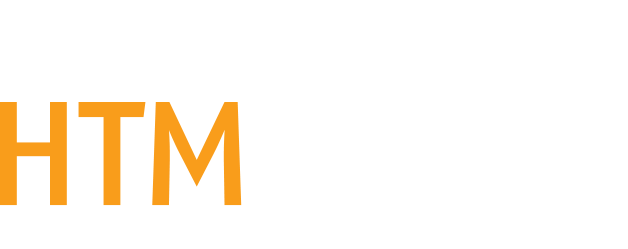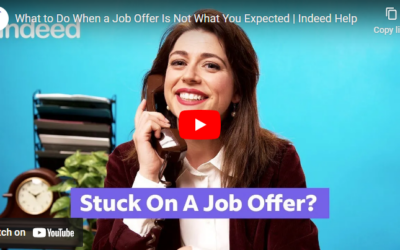
By Art Markman
Much of the job application process involves waiting. You check job postings and wait for new opportunities that match your skills and interests. You put together a cover letter and a résumé, send them off, and wait to hear about a possible interview. If you land an interview, you prepare, give it your best shot, and then you wait for a response.
The closer you get to an actual offer, the more anxious you get to hear more. That anxiety creates anticipation and energy. When you are energized, you want to act.
But don’t. Wait. You need to be smart about how and when you follow up at this stage.
The truth is that there is very little you can do right now that will help your cause. Being overly eager or pushy is (at best) going to seem annoying and (at worst) might actually hurt your chances of getting the job. Remember that the person who interviewed you may be handling many different positions, and if everyone they interviewed reached out to them, their inbox would be inundated with queries.
There are, however, a few exceptions to this “waiting” rule. More specifically, there are four times when it may actually be in your best interest to shoot the hiring manager a note.
The Thank-You Note
First things first: at the end of your interview ask the hiring manager when you can expect to hear back from them about next steps. This date will help you determine when it’s most appropriate to follow up down the line.
One day after your interview, you can send your first note. Send a quick email thanking the hiring manager for their time. Keep it short and sweet. Mention one specific thing about the interview or what you learned about their organization. Finally, mention how much you are looking forward to hearing from them. The thank-you note isn’t an opportunity to add more content to your interview. It’s just a chance to demonstrate your excitement and appreciation.
Dear [manager],
Thank you so much for your time yesterday and for giving me the chance to share my interest and qualifications for [job]. I particularly enjoyed learning about how your company has a training program for new employees that gives them an overview of different units and career paths.
I look forward to hearing from you.
If you don’t hear back from the hiring manager by the date they said they were going to make an offer, don’t send a note right away. It is possible that you weren’t the first choice for the job, but you’re still in the running. They may make an offer to someone else, and that person may not take the job. Give them a little time to work things out.
Put a note on your calendar to follow up one week after that date if you still haven’t heard back. When that day comes, send a quick note — no more than three paragraphs — to the hiring manager you dealt with. The content should be similar to what you wrote for the thank-you note. Express your interest and excitement about the role. Say something positive about the organization and ask if there is any additional information you can provide that would be of use. Tell them you are looking forward to hearing back soon.
Dear [manager],
I wanted to follow up on my interview on [date] for [position]. I was wondering if you had news to share about the position. I enjoyed our discussion and getting to know more about [company]. Of the companies I have engaged with during my job search, I was particularly impressed by your commitment to training and development. I felt that this growth mindset was a good fit to my career aims.
Please let me know if there is any additional information I can provide. I am excited about the opportunity to work with you at [company].
The Exception
The one time you can reach out in between the interview and the date the hiring manager gave you is if there is a significant change in your situation or portfolio. If you interview for your dream job and then get an offer from someone else before you hear back, you can write to let them know that you have another offer but that you really admire the company and its mission and are hoping to hear from them before deciding. Or perhaps you have written an article or submitted a patent application relevant to the job you applied for. If the article is accepted for publication or the patent is granted, you can share that news because it might influence the discussions about your application.
Dear [manager],
I wanted to follow up with you on my interview on [date] for [position]. Since we had a chance to talk, I received a job offer from another firm. However, your role as a leader in the field of [area], along with your commitment to developing the careers of your employees, is impressive, and I am excited about the prospect of working with you. If you have news about the position, I would like to know as I evaluate the offer I am considering.
The Feedback Note
If you feel like the interview went well, but you aren’t offered the job, you can send one additional note to ask for feedback on the interview. Again, you want to be brief. Thank the interviewer once again for their time. Say that you enjoyed the interview process and would like to get some constructive feedback on what you can do better in the future to improve your chances of getting a job.
Not all recruiters will take the time to give you that feedback, but often you may get a specific tip that can improve your chances on the next round — and who knows, it could lead to a different job offer down the line. In fact, my oldest son once reached out to get some feedback after being denied an offer and it turned into a job offer for another position the firm was about to post.
Dear [manager],
I was disappointed to learn that I did not get an offer following my interview on [date]. I enjoyed our conversation and am impressed with the work that [company] does. Because I am new to the job search, I was hoping you could give me some feedback on my interview. I would like to ensure that I present myself as effectively as possible in the future. Any suggestions you could give me would be appreciated.
Finally, remember that job hunting is exhausting. It takes a lot of energy. And it may take longer to get a job than you hoped or expected. It’s normal to be restless and tempted to send notes to hiring managers, even if it’s just to feel like you’re doing something. Unfortunately, those notes are not going to help you to get the job. So try your best to channel that energy into something else productive. Volunteer, sign up for networking events, apply to more jobs. Any one of those activities is a good outlet for your energy and is likely to lead to greater opportunities down the line.
How To Counteroffer Your Salary After Receiving a Job Offer
If the role you want offers something other than what you expected from it during the negotiations, then it’s reasonable to present a counteroffer.
Job Hopping: When It Makes Sense And How To Do It Tactfully
The job market has changed, with job seekers having access to more options than ever before.
6 Tips On Staying Motivated and Productive for the New Year
We hope these tips are helpful in helping you stay motivated and productive in the new year.
14 Ways to Stay Focused at Work Through the Holidays
There are so many competing demands and expectations during the holidays that it is very easy to get overwhelmed and even burn out.
Keeping Employees Engaged
What if I told you that only about 32 percent of U.S. workers claimed to be engaged in their work? Would you be surprised?
Ex-Google recruiter shares the No. 1 thing to do after applying for a job: ‘Everyone fails’ at it
Tthere is one more step that comes after applying which “everyone fails on,” says Nolan Church, former Google and DoorDash recruiter and the current CEO of Continuum, a talent marketplace for executives.
Summer Vacation Is Officially Over. How To Ease Back Into Work
Allowing time for reflection and planning can help avoid the back-to-work blues.
6 Success Tips for Young Professionals
While there’s no secret formula to becoming successful in the workplace, there are steps you can take and skills you can build during the early stages of your career that can help you move toward your long-term goals.
Tips for Deciding Whether to Apply for a Job
How can you tell whether you should apply for a job—or not? Busy job seekers often need to be
careful about which jobs to target.
What’s next?
Internships are an opportunity to network with great people and sharpen your skills before entering the workforce. They also help tremendously with figuring out your true passion.













